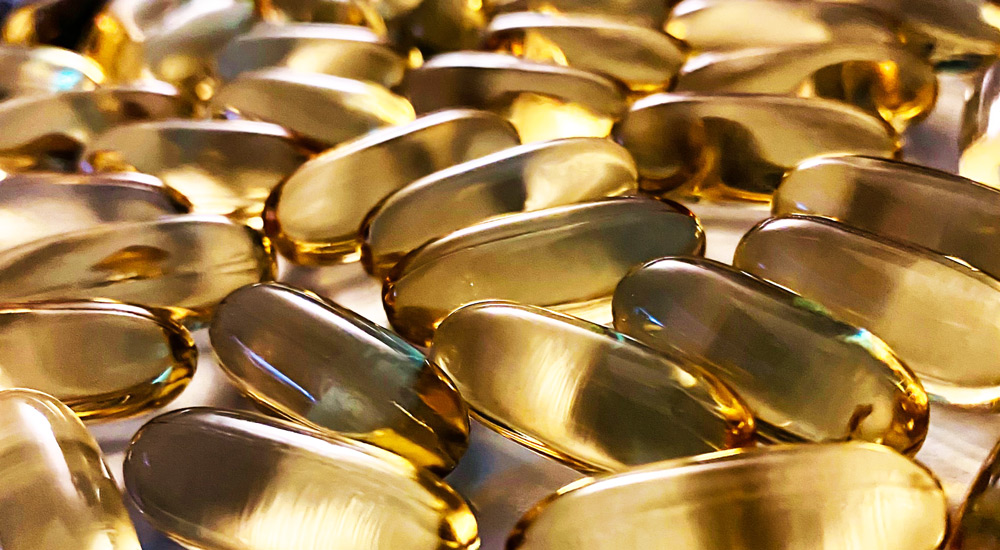Recent scientific advances demonstrate that acute inflammation includes at least three different phases named initiation (or onset); resolution; and post-resolution (or adapted homeostasis). All three of these phases must occur in a controlled fashion over time for optimal healing to occur in an acutely inflamed tissue. Resolution of acute inflammation is an active process that uses a number of different mediators including specialized pro-resolving lipid mediators (SPMs) to act as checkpoints and stop signals to the mediators of the proinflammatory or initiation phase. Most SPMs are synthesized from omega-3 fatty acid metabolites such as docosahexaenoic acid (DHA), eicosapentaenoic acid (EPA), and docosapentaenoic acid (DPA). SPMs are present in many different human tissues and fluids and their actions determined in numerous animal studies and some human trials. However, there is currently limited evidence indicating whether supplementation with omega-3 fatty acids can specifically increase synthesis of SPMs in humans, thus mitigate the inflammatory response. The objective of this article is to highlight a new study that has recently examined this important question. In this randomized, double-blind placebo-controlled crossover study, peripheral blood from healthy volunteers (n=22) was collected at baseline, 2, 4, 6, and 24 hours after administration in the morning of either placebo (corn oil) or one of 3 doses (1, 3, 4.5 g) of an enriched marine oil supplement [1]. Marine oil supplementation led to a statistically significant time- and dose-dependent increase in the concentration of peripheral blood SPMs compared to placebo, but only in individuals consuming either the 3 or 4.5 g doses. There also was a dose-dependent increase in neutrophil and monocyte phagocytosis of bacteria in blood of volunteers previously infected with Escherichia coli or Staphylococcus aureus. Moreover, in response to supplementation, there also was a dose-dependent decrease in expression of adhesion molecules on neutrophils, monocytes, and platelets; altered diurnal activation of stimulated [2] leukocytes and platelets; and reduced aggregation of monocyte-platelet aggregates. Finally, 24 hours after supplementation, significant and marked changes in expression of different immune and metabolic genes were identified compared to placebo, according to transcriptomic analysis of peripheral blood cells.
The strengths of this study include using a crossover design to minimize the influence of interindividual differences in response, strict inclusion, and exclusion criteria, using three different doses of enriched marine oil in different treatment groups to determine a dose response, collecting data over a 24-hour period to assess any circadian changes as well as using multiple cutting-edge systems science technology platforms to collect and analyze an enormous amount of data. For example, metabolomics was used to identify the different types and concentration of SPMs in the blood plasma. Transcriptomics was used to determine differential gene expression following blood withdrawal and infection with Escherichia coli or Staphylococcus aureus. Flow cytometry and different blood chemistries were used to identify various cell types and their adhesion molecules as well as other blood markers.
The weaknesses of this study are: 1) Using healthy human subjects between the ages of 18 and 40. Benefits of omega-3 fatty acids are influenced by various factors including existing inflammatory status, age, gender, and genetics suggesting results of this study may not be directly applicable to a wider population group, 2) All subjects received their supplementation in the morning. Different contributors to acute inflammation including biosynthetic enzymes for SPM synthesis and the numbers and activation of different white blood cells in plasma are under circadian control, suggesting that supplementation at different times of the day might yield different SPM profiles as well as have different biological actions on circulating blood cells. This is one of a few studies indicating that supplementation with omega-3 fatty acids can increase the synthesis of SPMs in humans and, therefore, regulate inflammation resolution. The observed enrichment of genes involved in immune and peripheral blood cell responses after 24 hours compared to placebo suggests that omega-3 fatty acid supplementation can reprogram the peripheral blood cell response to a more protective phenotype with benefits that may be long lasting. The results also support previous studies indicating SPMs have antimicrobial properties and are synthesized under circadian control. In sum, the evidence from this well designed and comprehensive study strengthens the use of relatively large doses of omega-3 fatty acids to safely and effectively control acute inflammation.
Reference
- The marine oil supplement contained 3% unesterified arachidonic acid (AA), 46% EPA, 18% n-3 DPA, 33% DHA & several SPM precursors including 17-hydroxy-docosahexaenoic acid (17-HDPA) and 18-HEPE (hydroxy-eicosapentaenoic acid) per 1.5 g total fatty acids. Negligible amounts of SPMs or their precursors were found in the placebo.
- Whole blood from volunteers was incubated with platelet-activating factor (PAF) to determine whether supplementation influenced peripheral blood response to a well-known stimulus of vascular inflammation.
Souza PR, Marques RM, Gomez EA, et al. Enriched Marine Oil Supplements Increase Peripheral Blood Specialized Pro-Resolving Mediators Concentrations and Reprogram Host Immune Responses: A Randomized Double-Blind Placebo-Controlled Study. Circ Res. 2020;126(1):75-90



